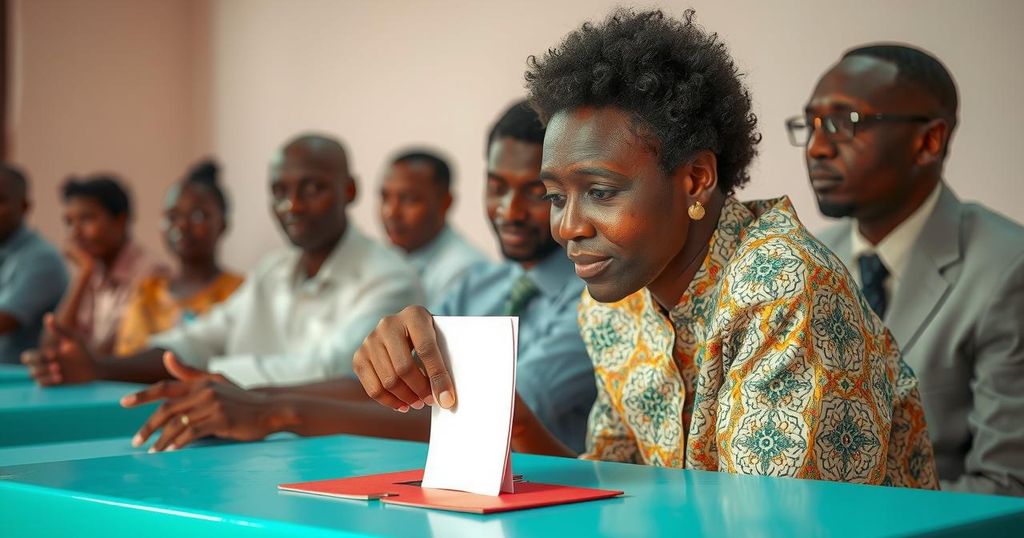Chad’s Parliamentary Elections: Low Turnout Amid Opposition Boycott

Chad’s parliamentary elections faced low voter turnout amid opposition boycotts, concluding a three-year military transitional period. The main opposition decried the electoral process as illegitimate, questioning the democratic legitimacy of the elections led by Mahamat Idriss Deby, who continued his father’s legacy after initial disputed votes. These elections represent Chad’s effort toward decentralization while facing serious security challenges.
In Chad, parliamentary and regional elections held on Sunday saw a notably low turnout, as many citizens refrained from participating due to a boycott by the main opposition parties. This election marks the conclusion of a three-year transitional period following military governance. The central government, led by Mahamat Idriss Deby, faces accusations of conducting a non-transparent electoral process. Deby, who succeeded his father, claimed that the elections would herald a long-desired period of decentralization for the nation. However, with more than ten opposition parties refusing to partake, skepticism surrounding the electoral legitimacy prevails. As Chad navigates significant challenges, including security threats from extremist groups, the future of democracy in the country remains uncertain as the nation attempts to navigate the transition-away from military rule.
Chad has grappled with political instability since gaining independence from France in 1960. The country has not experienced a genuine democratic transition for over a decade. Following the death of long-serving President Idriss Deby Itno in 2021, control passed to his son, Mahamat Idriss Deby. The elections held this year are particularly significant as they are the first in recent history under military-led transitional governance in the Sahel region, marking an attempt to return to democratic rule after previous electoral disputes.
In conclusion, the recent parliamentary elections in Chad signify a critical juncture as the nation moves from military rule towards democracy. However, the low voter turnout, especially in the capital N’Djamena, alongside widespread opposition boycott, raises serious concerns regarding the integrity of the process. As Chad continues to battle internal and external security challenges, the effectiveness of these elections in catalyzing true democratic governance remains to be seen.
Original Source: apnews.com







